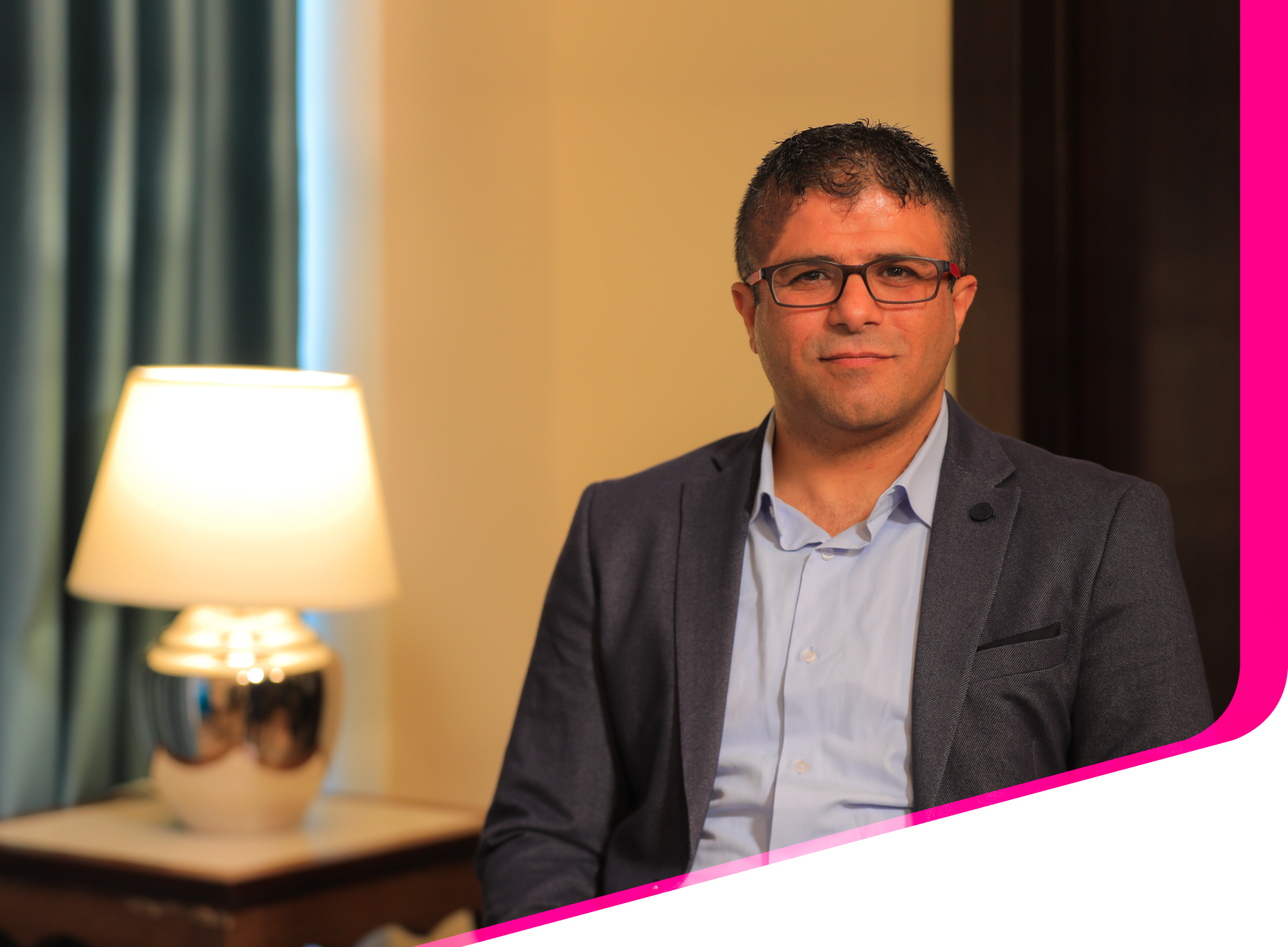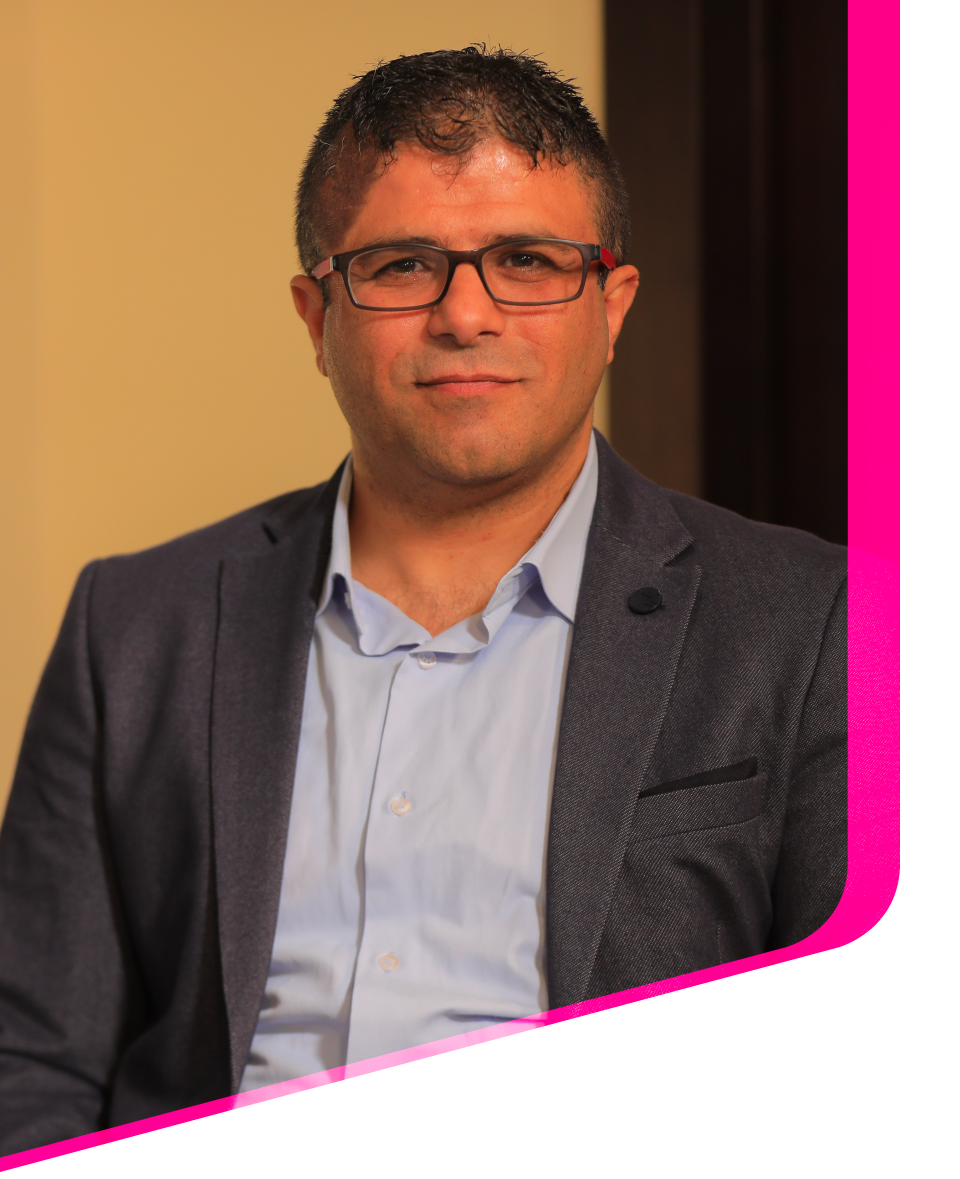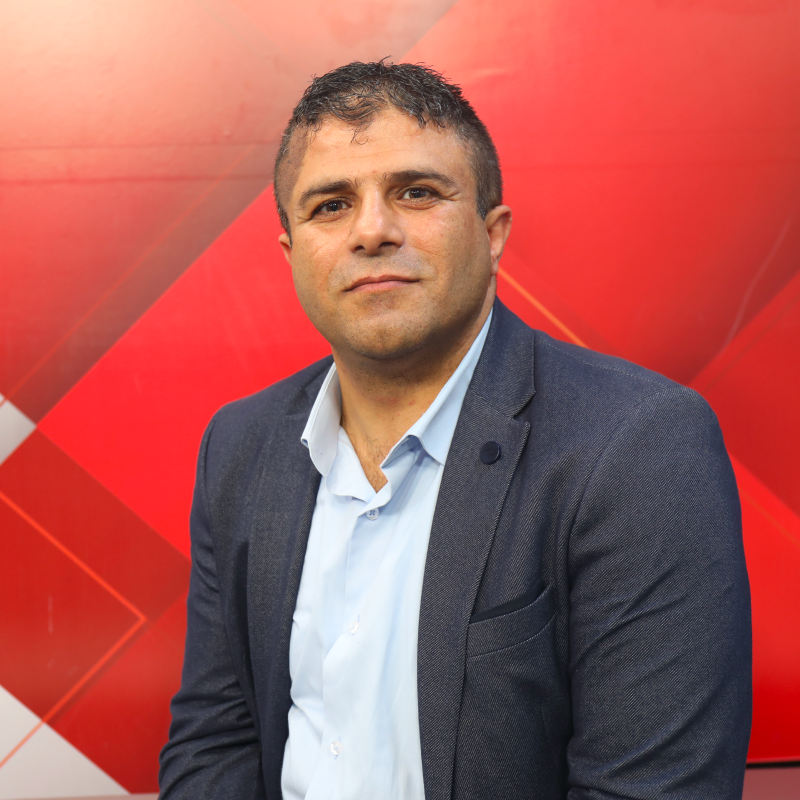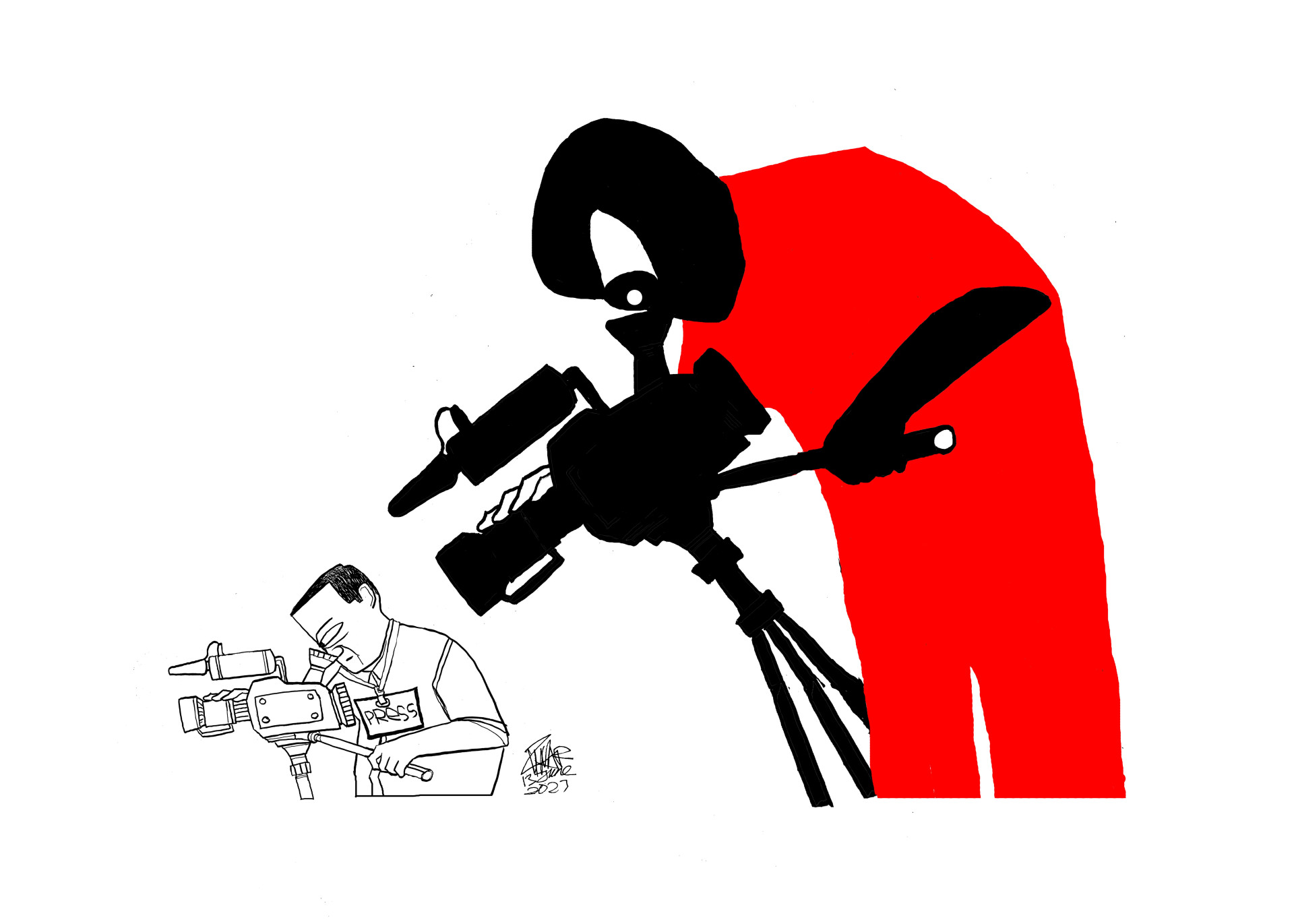
Palestinian Territories
Palestinian Territories
Palestinian Territories
Khaled Faqeeh
Khaled Faqeeh
Khaled Faqeeh
Journalist and Executive Team Leader at Wattan Media Group
Journalist and Executive Team Leader at Wattan Media Group
Journalist and Executive Team Leader at Wattan Media Group

Palestinian Territories
Khaled Faqeeh
Journalist and Executive Team Leader at Wattan Media Group
„I strongly believe that fact-checking and countering fake news are essential for fostering trust in our democratic processes.“

VITA
Khaled Faqeeh is a Palestinian human rights defender and social justice advocate. He is the executive team leader of Wattan Media Group, an independent Palestinian media organization. At Wattan Media Group, his work focuses on advocating for accountability for violations of the rights the most marginalized groups in Palestine, such as youth and women. He is also a voice against corruption by the government officials. He is also a media and communication trainer for younger generations. Khaled has been working with civil society organizations, young social activists, and marginalized communities to ensure their voices are heard. He has been instrumental in the establishment of young journalist networks to report on the rights and concerns of youth, women and people with disabilities.
How did you get involved in defending human rights?
Over the past 23 years, a significant portion of my work has revolved around training and generating content that advocates for transparency and accountability. I got involved in defending human rights by making it a part of my career, taking social action, joining and starting advocacy groups, and developing relationships with human rights activists and organizations. I dedicated my spare time to raising awareness about human rights issues and garnered media attention for these causes. Moreover, I ensured that the voices of the marginalized are heard through the media. I established young journalist networks and advocated for the rights of youth, women, and people with disabilities.
What are the main challenges human rights defenders face in your country?
For me there are many challenges – as all human rights defenders in Palestine face consisting of internal and external challenges. The internal ones are related to my profession. As an independent Palestinian media actor, I have faced challenges such as restrictions from the government on freedom of speech and expression, pressure leading to self-censorship and even detention. In addition to the shrinking space for political engagement and activism, there have been no presidential and legislative elections since 2006.
The ruling authorities in both Gaza and West Bank maintain control over the media content. One on the main challenges is to find funding for defending human rights activities. The external challenges relate to the complexities of political and social context with the Israeli occupation in West Bank and Gaza. No rights of movement, more checkpoints, and roadblocks, hinder the work of defenders and limit their access to communities in need.
What is your message to human rights defenders?
Your resolute dedication as defenders of human rights is undeniably inspiring. Despite obstacles and hardships, you persistently struggle to amplify the voices and fulfil the needs of those entitled to their rights. Together, we can forge a brighter path towards progress. Keep championing human rights, ensuring equal access to education, healthcare, and opportunities for the youth, women, children, the elderly, and individuals with disabilities. Your advocacy not only empowers individuals, but also lays the foundation for a world where human rights are universally safeguarded and promoted.

In which specific case did you tackle human rights issues in your country?
I’m always dedicated to the young generations. Youth are the main driver behind social and economic change in Palestine, though, youth is facing a myriad of problems, including but not limited to the ongoing economic crisis. Theyalso have to deal with political uncertainty, limited freedoms, and Israeli occupation have led to poverty and unemployment, psychological distress, depression, gender-based violence, lack of access to mental health, lack of job opportunities, and fear of violence. The strength of democracy depends on youth engagement in decision-making and a dialogue with public officials. Their active participation in the legislative and governing process is needed. For this, Moraseloon, Shabab Café, Face the Youth, and Leaders for Tomorrow are examples of youth networks that I contribute to. They managed to change a lot at the municipal level.
Have you ever been attacked for your views and stands on certain human rights issues?
As part of the organization which I worked with, at the Wattan Media Network, we encountered considerable difficulties. The Palestinian government security forces had summoned our team, compelling to stop any talks or discussions about elections on Wattan platforms. A few months ago, the security forces broke into Wattan's premises, preventing a press conference urging elections and attacking the Wattan team.
Why do you see your mission in tackling corruption and combating fake news and misinformation?
I strongly believe that fact-checking and countering fake news are essential for fostering trust in our democratic processes. In the future, I will prioritize verifying information and combating hate speech by establishing a network of young participants. They will use a design thinking approach to create a space for sharing information and play a vital role in verifying content, especially on social media. Collaboration with international experts will enhance the platform's effectiveness and impact, addressing the lack of expertise in our region.
How do you see the role of media in defending human rights?
The independent Palestinian media is a vibrant sector, which builds on a robust history of action to spread information and news. Despite the challenges, media is a tool for accountability and investigative efforts. It highlights the gaps of the public institutions. Under the prevailing circumstances, there is an urgent need for media to defend human rights. It is important to publish content in order to promote accountability and democracy, to provide a platform for citizens to voice their concerns, and to facilitate a dialogue on issues of political and social importance.
Palestinian Territories
